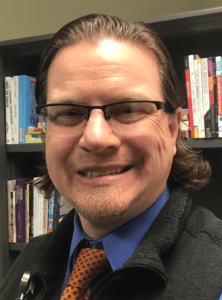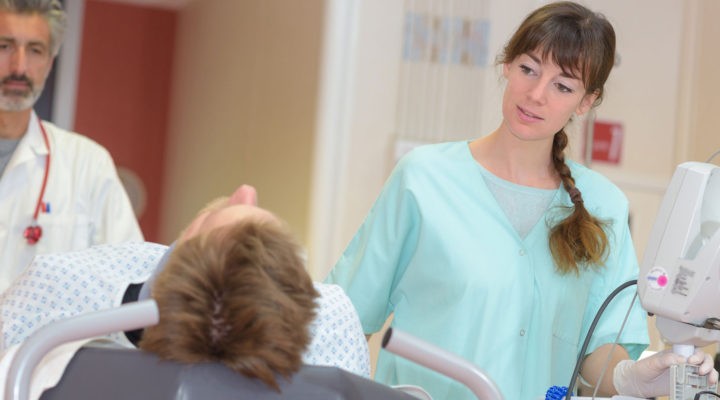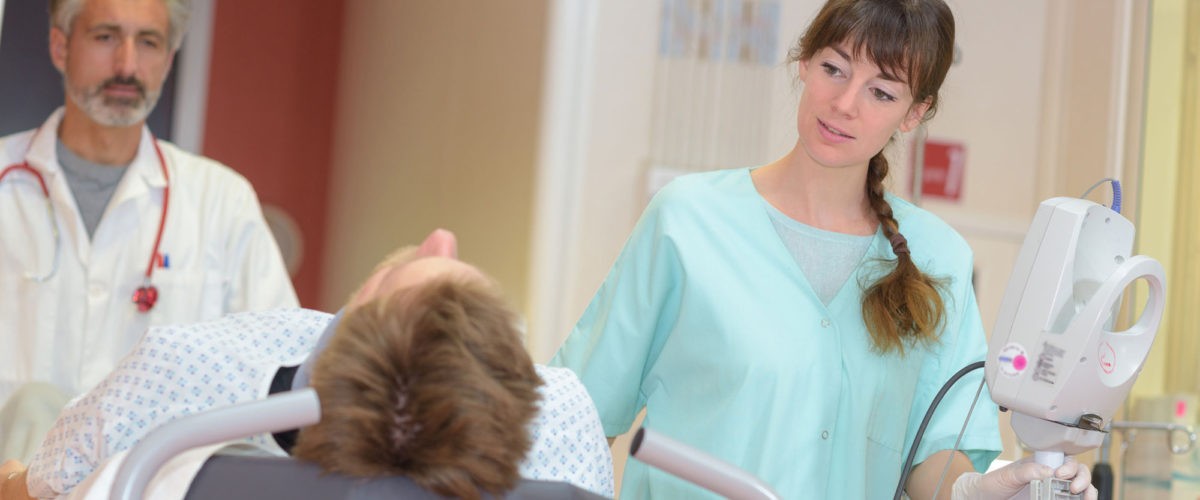As a hospital chaplain, I’ve walked with many patients and families through the illness and even death associated with COVID-19. Because of the pandemic, every hospital admission is different today than it was a year ago.
Out of this experience, here are seven things I wish all patients and loved ones knew before a hospital admission:

Chad Mustain
First, complete your advanced care planning before a hospital admission. Be proactive and meet with a lawyer or use an online format like Legal Zoom to get your legal affairs in order. At a minimum, have a medical power of attorney and living will that states your medical decision maker and health care wishes. Ideally you would have all matters addressed so that there are not questions about finances, your estate and what might happen with the custody of your children. Yes, during a hospital admission many hospitals and hospital chaplains can help you address a medical power of attorney and living will. However, a hospital admission is less than the ideal time to do this and causes unnecessary stress on patients, loved ones and hospital staff.
Second, set up your medical ID on your cell phone. Please use actual names and relationships and not nicknames. Please include your medication list, any health conditions or any other important medical information in your medical ID. In emergency situations, often a cell phone will arrive with a patient but it is locked with a passcode and hospital staff, including chaplains, are unable to help determine emergency contacts and other vital information for the patient.
Third, if you have a planned or anticipated hospital admission, make sure to pack your cell phone, cell phone charger, your medication list, bring copies of advanced care planning documents, and notify your emergency contacts of your hospital stay. It is shocking how unprepared patients often are and the added stress this puts on patients, loved ones and hospital staff. Additionally, consider turning off your passcode, fingerprint identification or facial recognition. It is not uncommon for a patient to experience confusion, a foggy mind and stress-induced forgetfulness and be unable to operate their cell phone. Also, because so many hospitals are at or over capacity, temporary rooms are set up in tents or other spaces in the hospital that often do not have land line phones available.
“Because so many hospitals are at or over capacity, temporary rooms are set up in tents or other spaces in the hospital that often do not have land line phones available.”
Fourth, make sure to educate your loved ones, particularly older loved ones, on how to use a smartphone or tablet. Make sure they know how to unlock the phone, make a phone call, make a video call. It is heartbreaking to see patients frustrated and unable to connect with loved ones because they do not know how to appropriately utilize a phone or tablet that their family insisted that they get.
Fifth, designate one family member or loved one to be the point of contact for doctors, nurses and medical staff. Hospital staff know that most patients have many people who love them and would like to receive updates. However, hospital staff do not have the time or emotional capacity to update multiple family members multiple times a day. Pick one person to be the point of contact who can do a good job of remembering and sharing information with others. If your loved one is dealing with an extended hospital stay due to things like COVID-19, cancer or major injuries from an accident, consider setting up a Facebook page or blog in order to share updates for family friends and love ones. This will help alleviate the stress of your phone continually ringing and buzzing as well-meaning people desire to check in, offer support and receive updates.
“Hospital staff do not have the time or emotional capacity to update multiple family members multiple times a day.”
Sixth, avoid playing Google MD and being an armchair quarterback regarding plans of care. There is little that is more defeating for a medical team — including the social worker, care transition manager and chaplain — than when a family member disrupts a patient’s plan of care and even discharge plan because they have been on Google or have decided they want to put a discharge on hold to check one more facility. Bed availability in rehab facilities, skilled nursing inpatient facilities and nursing homes is incredibly competitive. Patients can wait for days and even weeks for beds to become available. There is sometimes a very small window of time, and it is heartbreaking when a well-intended family member disrupts a medical team’s hard work because they are playing Dr. Google or decide they want to go with a different facility than what was recommended. Often, the difficult reality is the preferred facility for a family member may not be covered by insurance, and if one misses the window it can send a patient back days or even weeks in their health journey.
“It is heartbreaking when a well-intended family member disrupts a medical team’s hard work because they are playing Dr. Google.”
Finally, keep an open dialogue with your loved ones about your health care wishes and even discussions about death and dying. Death and dying seem to be taboo subject in the United States. We put so much thought and planning into every other stage of life. Births, school transitions, graduations, weddings, job transitions, buying homes, retirement and more. Yet when it comes to death and dying, so many families have never talked about what their loved ones’ wishes might be, what their preferences are regarding life-sustaining treatment, and what their wishes are after they die regarding burial, cremation, what type of service and which funeral home they prefer to use. It is essential that we normalize conversations in our culture about death and dying. The anxiety, stress and even fighting that occurs at the end of life around health care wishes and arrangements can absolutely ruin the final days and hours of a person’s life. We honor our loved ones by having these important conversations ahead of time so that we can honor them in death just as we desire to honor our loved ones in life.
Chad Mustain is a CBF-endorsed hospital chaplain in the Dallas-Fort Worth Metroplex. These recommendations are his own opinions and do not in any way represent his employer. Chad is a graduate of Baylor University’s Truett Seminary and recently completed a doctorate at TCU’s Brite Divinity School.


